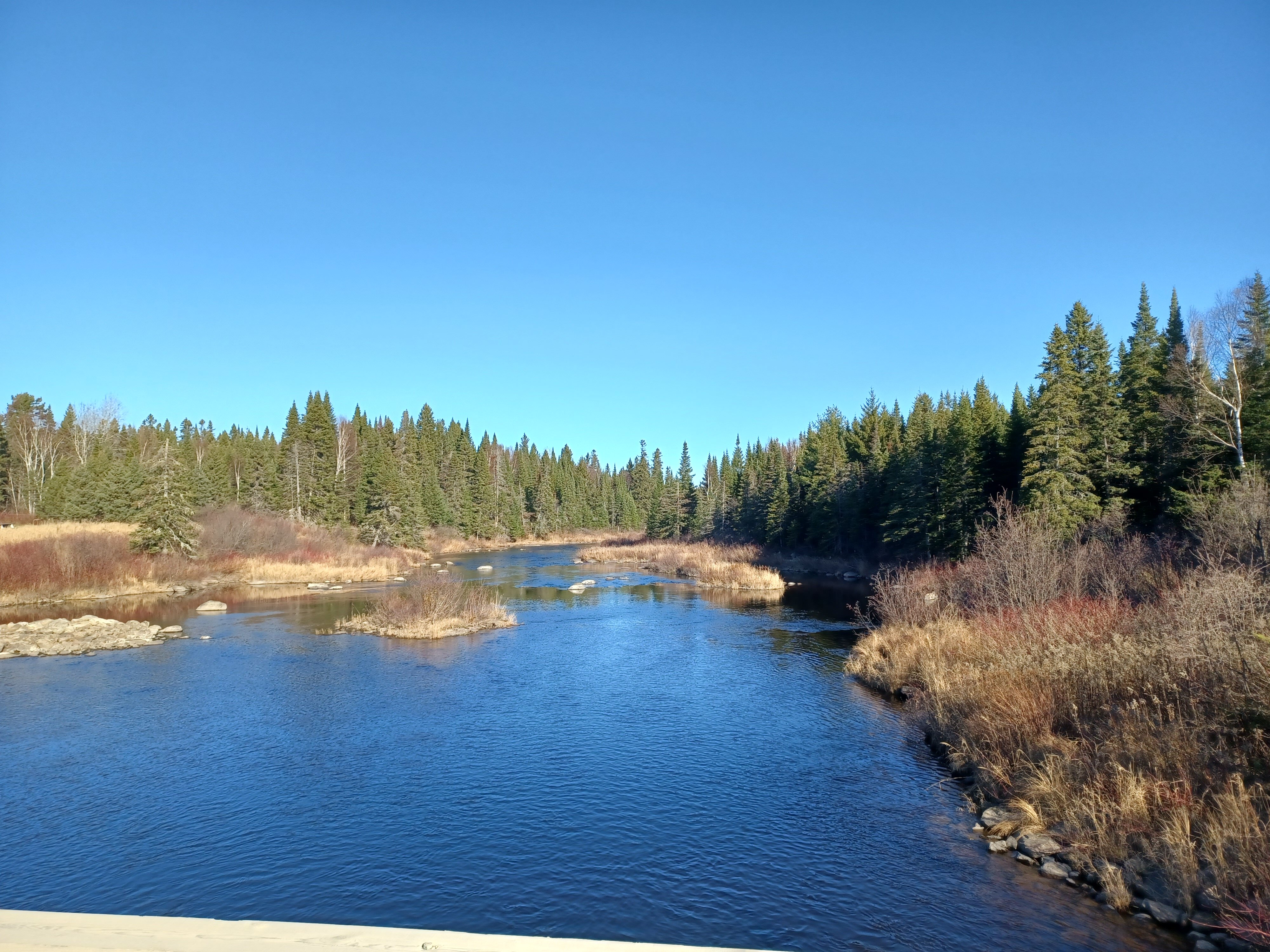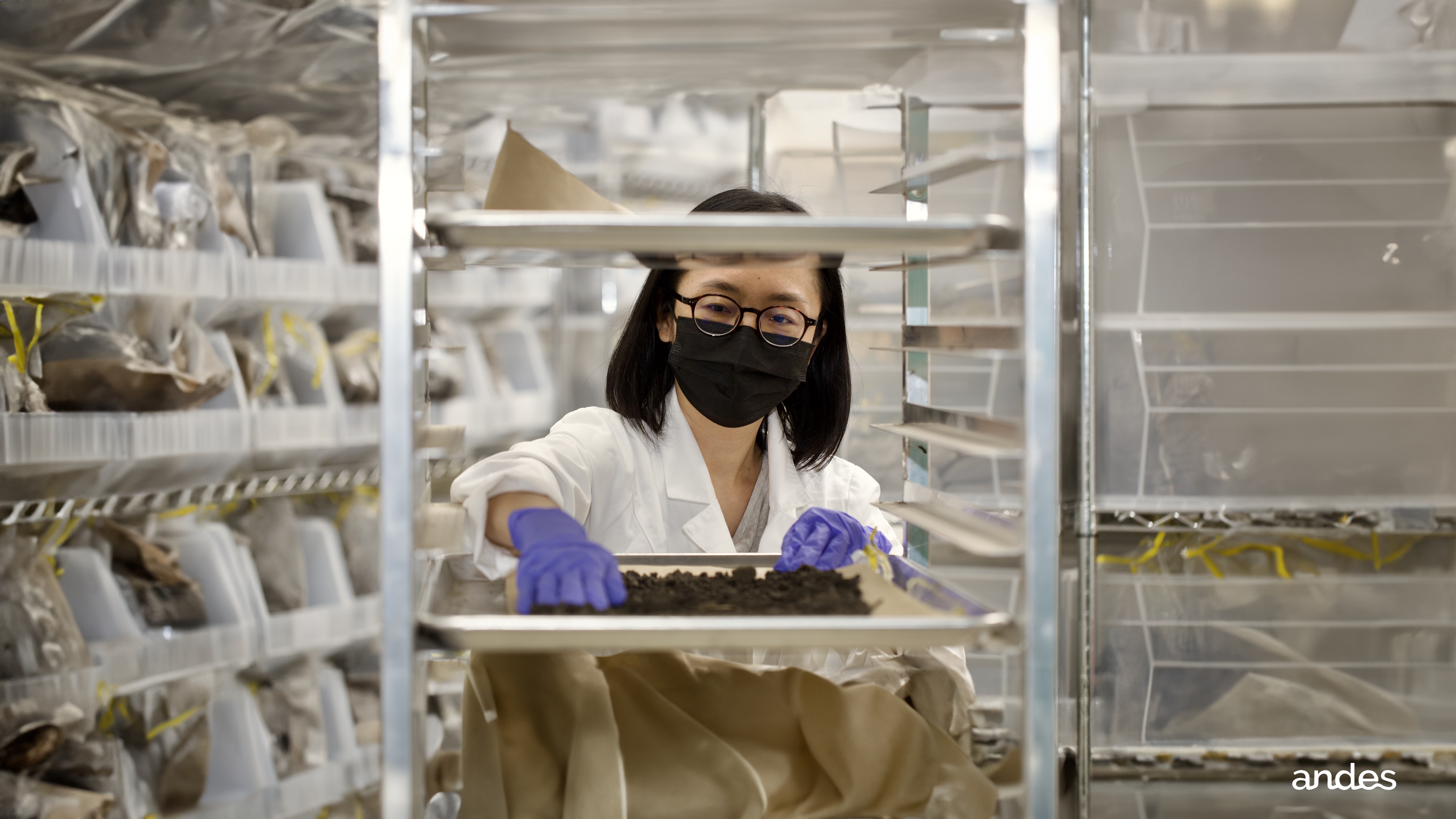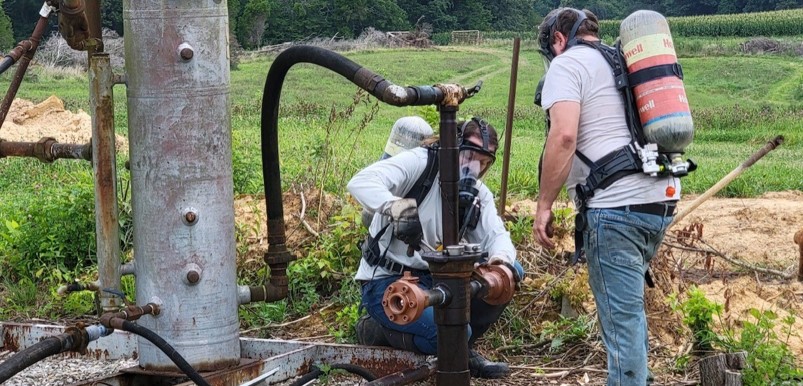
North Maine Woods Improved Forest Management
Maintaining forest CO₂ stocks through sustainable forest management
The North Maine Woods Project is a 92,000-acre project containing areas of mature hardwood stands over 100 years old, located near the Canadian border within the largest undeveloped forest in the eastern United States. Part of a landowner co-op in northern Maine comprising 4.5 million acres and aiming for responsible management and conservation, the project is estimated to remove approximately 3 million metric tons of CO2 over its lifetime. Its carbon revenues will help pay off the initial purchase loan as well as buy additional timberlands for sustainable forestry management. A baseline scenario for a timber property such as this would involve aggressive timber harvesting, which would compromise both wildlife and biodiversity.
The project area is home to black bears and a thriving moose population that averages eight to ten moose per square mile as opposed to the typical two to three per square mile. Additionally, because the project area is part of a larger network of forests, it provides important connectivity for populations of Canada lynx, while its wetlands contain unique species of both butterflies and moths.
Technology
Ratings
Project details





Project certifications
Certifier
American Carbon Registry
Registry ID
ACR587
Crediting period term
Latest project methodology
Improved Forest Management (IFM) on Non-Federal U.S. Forestlands | Version 1.3
Project design document (PDD)
PDD: North Maine Woods Improved Forest Management
Current verifier of project outcomes
Ruby Canyon Environmental, Inc

Andes Microbial Carbon Mineralization
Applying microorganisms alongside crop seeds to accelerate the natural mineralization of atmospheric CO₂ in soil
The Andes Microbial Carbon Mineralization project uses microbial technology to remove carbon dioxide from the atmosphere through agricultural soil applications. The project applies a proprietary microbial inoculant to agricultural soils, which enhances natural carbon sequestration processes by converting atmospheric CO2 into stable inorganic carbon compounds in the soil. This technology increases Soil Inorganic Carbon (SIC) through the formation of carbonate minerals, providing a durable carbon storage solution.
Spanning across agricultural sites in North Dakota, Wisconsin, and Minnesota, the project targeted 25,000 acres of cropland in its first year. The microbial inoculant is applied as either a seed treatment or through in-furrow application on existing non-irrigated cropland, ensuring minimal disruption to current farming practices. The project follows rigorous monitoring protocols throughout the growing season, with soil samples collected at multiple time points to measure carbon sequestration effectiveness.
As the first project of its kind in the region, this initiative offers co-benefits beyond carbon removal. Farmers receive an additional revenue stream through participation in the carbon program, while the microbial inoculant promotes healthier soil and plants. The technology is designed to work on fields with near-neutral to alkaline pH levels, conditions that favor long-term carbon storage durability. The project also prioritizes soil health monitoring, tracking soil organic carbon levels and cation exchange capacity to ensure no negative impacts on agricultural productivity.
The project developer, Andes, brings scientific expertise and agricultural experience to this carbon removal approach. The team is led by Co-founder and Chief Technology Officer Tania Timmermann, who holds a Ph.D. in Complex Systems Engineering and has over 12 years of experience studying beneficial bacteria-plant interactions in agricultural systems. The team also includes specialists in remote sensing, machine learning, environmental soil chemistry, and field operations, ensuring comprehensive technical and operational capabilities for project implementation.
Technology
Project details


Project certifications
Certifier
Independent
ISO 14064-2
Registry ID
Andes MCM USA
Crediting period term
Latest project methodology
Microbial Carbon Mineralization | Version 1.0.1
Project design document (PDD)
PDD: Andes Microbial Carbon Mineralization
Current verifier of project outcomes
Earthood Services Private Limited

Tradewater US - Plugging Orphaned Oil and Gas Wells 2
Finding, measuring, and permanently plugging 1 high-emitting orphaned gas well in Greene County, Indiana
Tradewater is a B Corp and mission-based project development company that is strategically focused on the collection, control, and destruction of potent non-CO2 greenhouse gases. Tradewater searches around the world for canisters of antiquated refrigerants and fire suppressants that are up to 10,000 times more potent than CO2 and destroys them before they rust and leak. Tradewater also plugs orphaned oil and gas wells that are actively spewing methane and carcinogens. By using technology available at scale today to prevent emissions of some of the world’s most potent greenhouse gases, Tradewater is rapidly reducing global emissions and “hitting the emergency brake” on climate change. To date, Tradewater has permanently prevented over 7.5 million tons of CO2e from reaching the atmosphere and has set a bold new goal of collecting, controlling, and destroying at least 3 million tons of CO2e annually moving forward.
For this project, Tradewater is plugging 1 orphaned gas well in Greene County, Indiana to prevent methane emissions, remediate land, and improve local air and water quality. Over a 20-year period, methane has a global warming potential that is 84 times greater than CO2. Since the Industrial Revolution, methane has caused 30% of global warming.
Orphaned wells are those where the company that drilled and operated them is either bankrupt or otherwise insolvent, leaving no company liable to plug the wells. While some federal funding has been allocated to plug these wells, it is nowhere near enough to cover the cost of plugging all existing orphaned wells in the US, making Tradewater's work highly additional. These wells are located on farms, public land, and even in backyards, leaking methane and toxic gases like hydrogen sulfide and the known carcinogen benzene. Tradewater conducts field tests to directly measure methane releases, then coordinates with landowners and state agencies to plan plugging activities. Tradewater hires qualified local contractors to remove surface equipment, plug wells per state regulations, and remediate the land, permanently stopping current and future methane leaks and returning the land to its rightful state.
Credits were generated from the plugging of orphan wells in accordance with the protocols set forth by the leading carbon registry American Carbon Registry (ACR). All ACR projects are third-party verified to ensure compliance and quality.
Technology
Ratings
Project details




Project certifications
Certifier
American Carbon Registry
Registry ID
ACR915
Project registration date
Crediting period term
Latest project methodology
Plugging Orphaned Oil and Gas Wells | Version 1
Project design document (PDD)
PDD: Tradewater US - Plugging Orphaned Oil and Gas Wells 2
Current verifier of project outcomes
GHD Services Inc.



